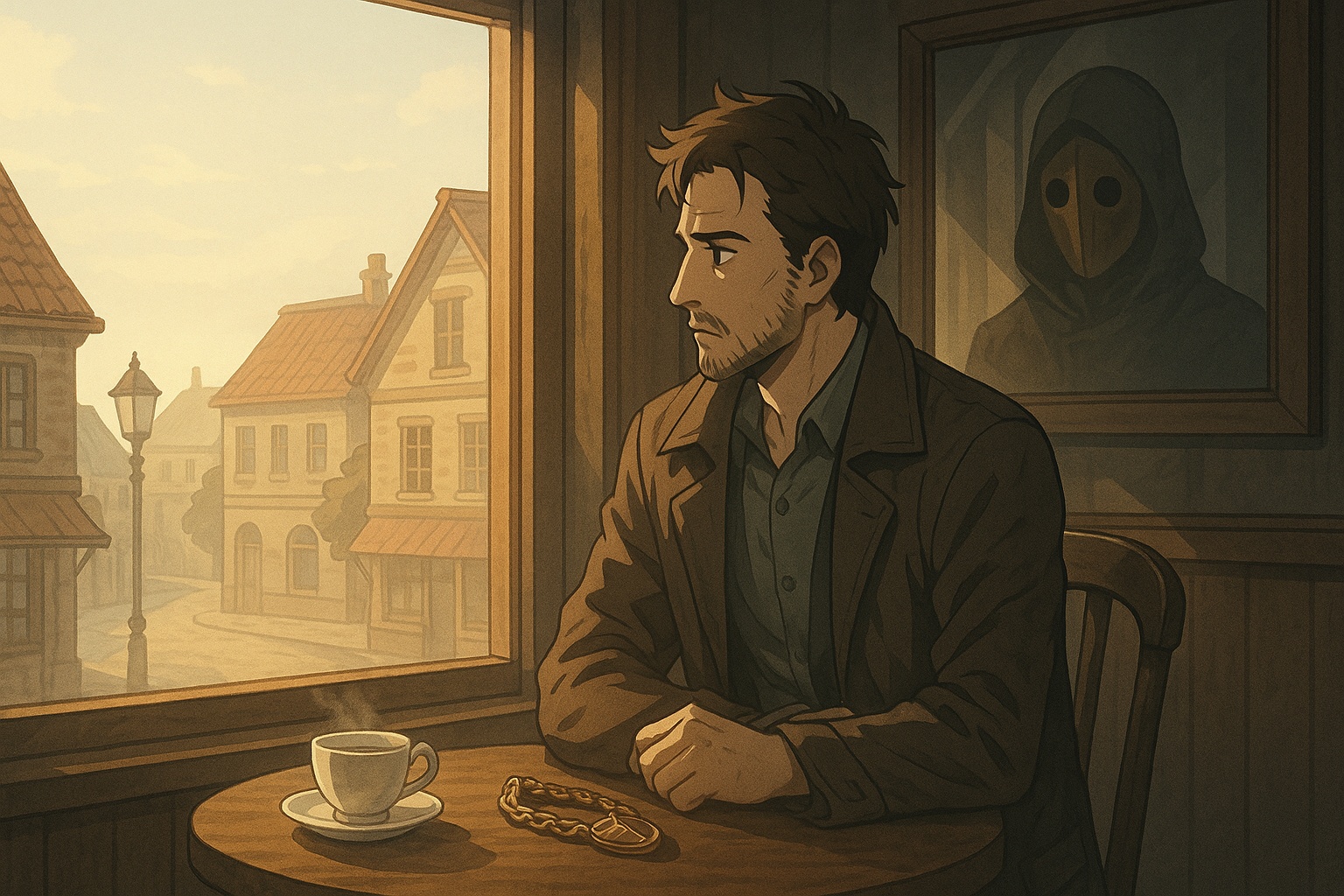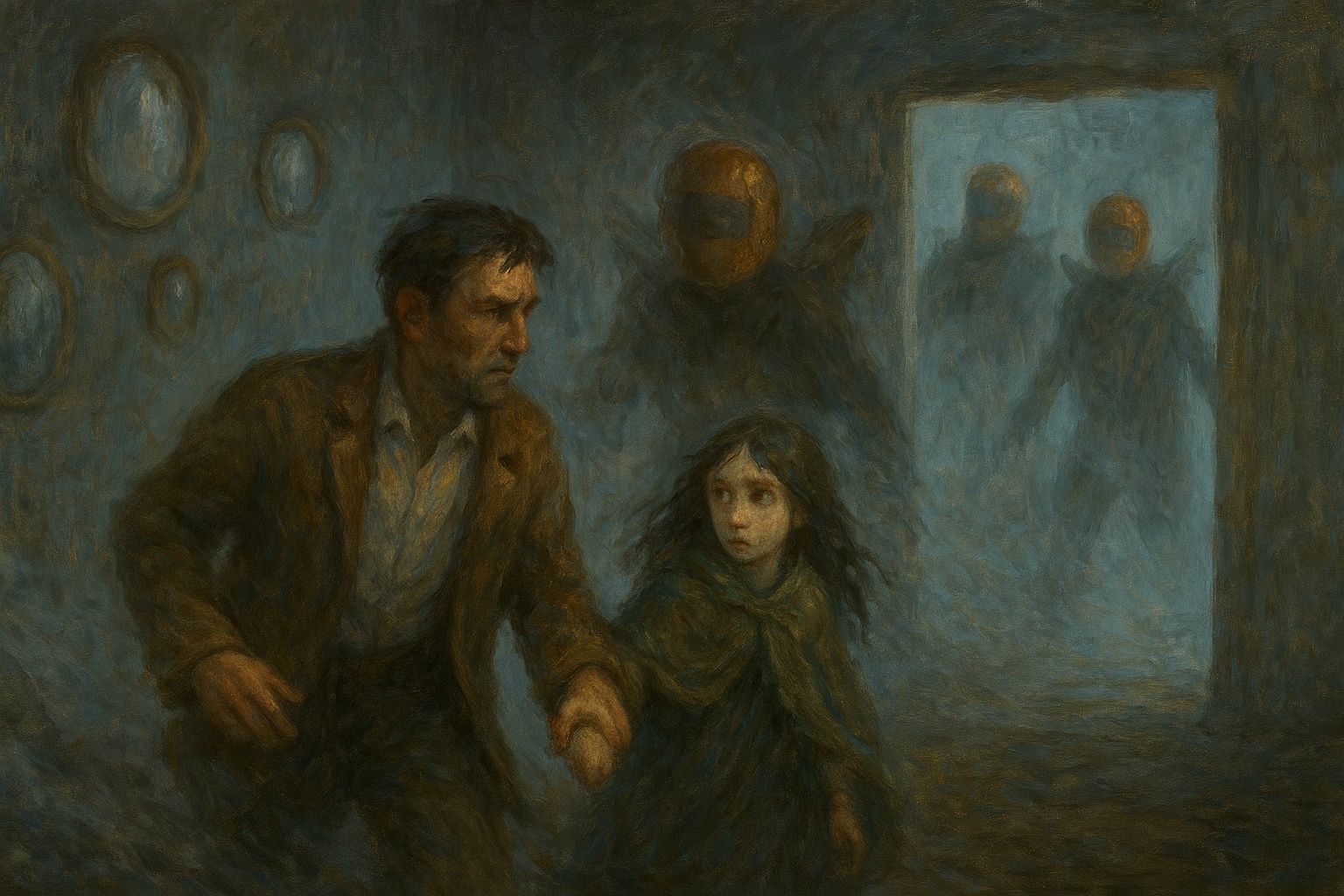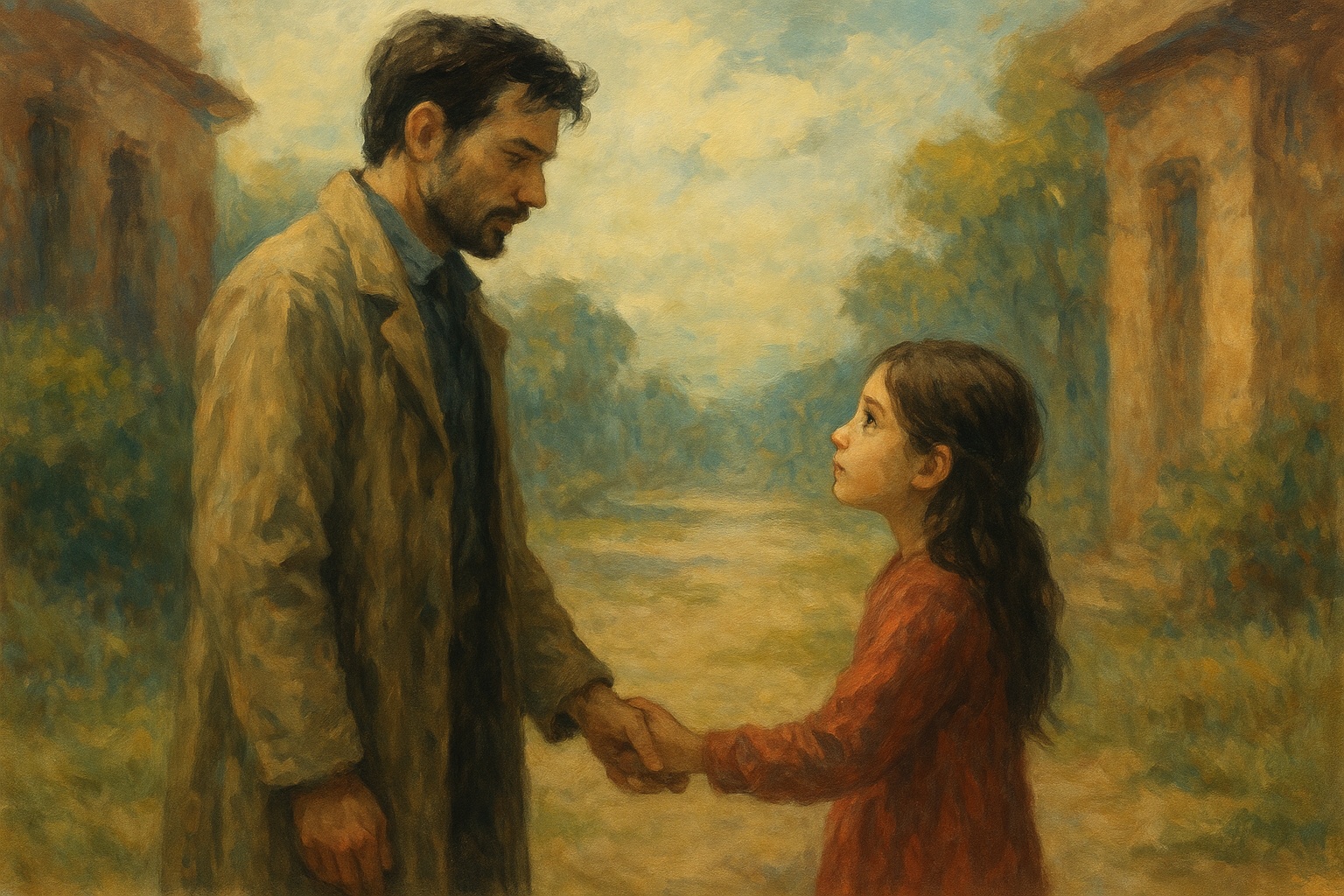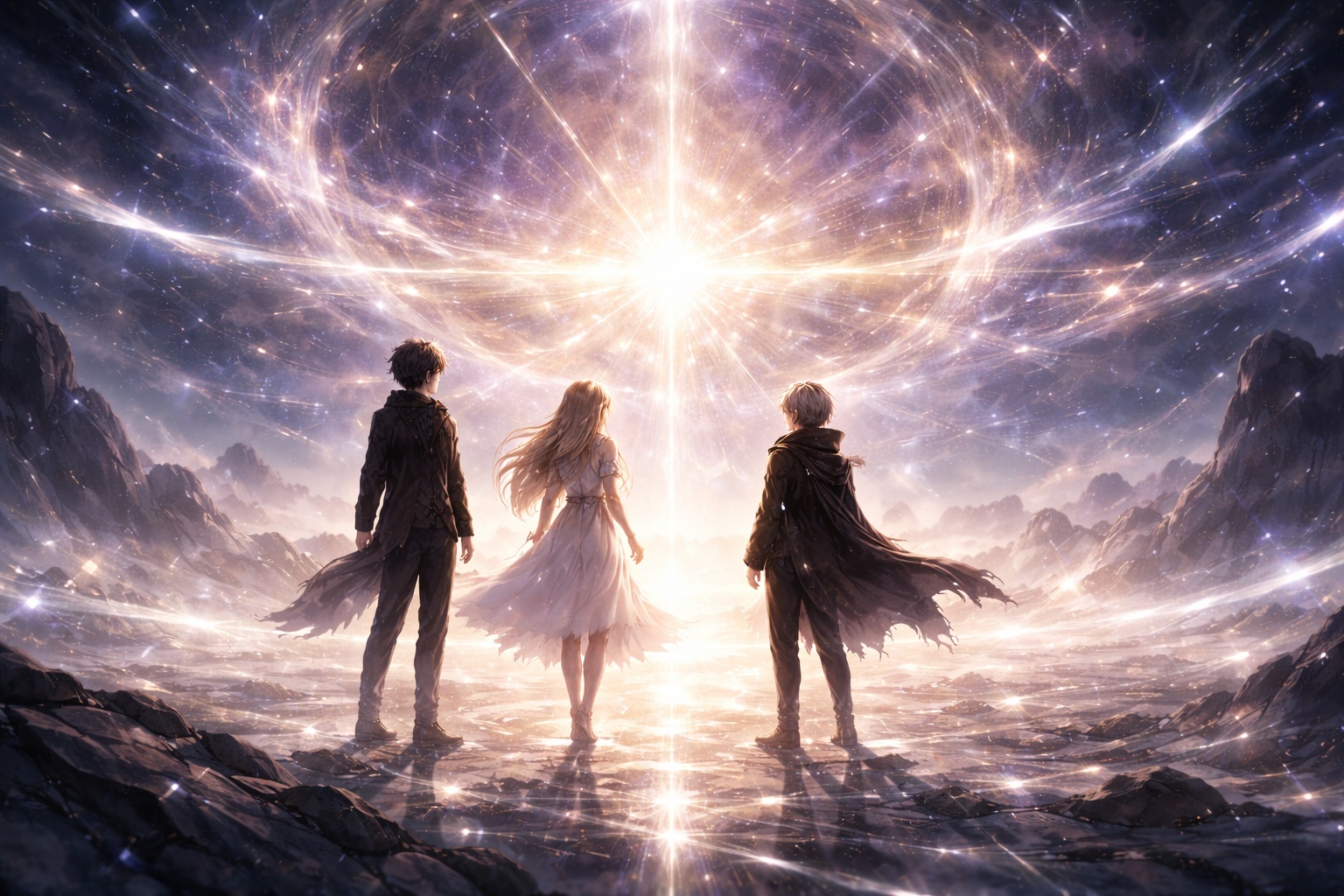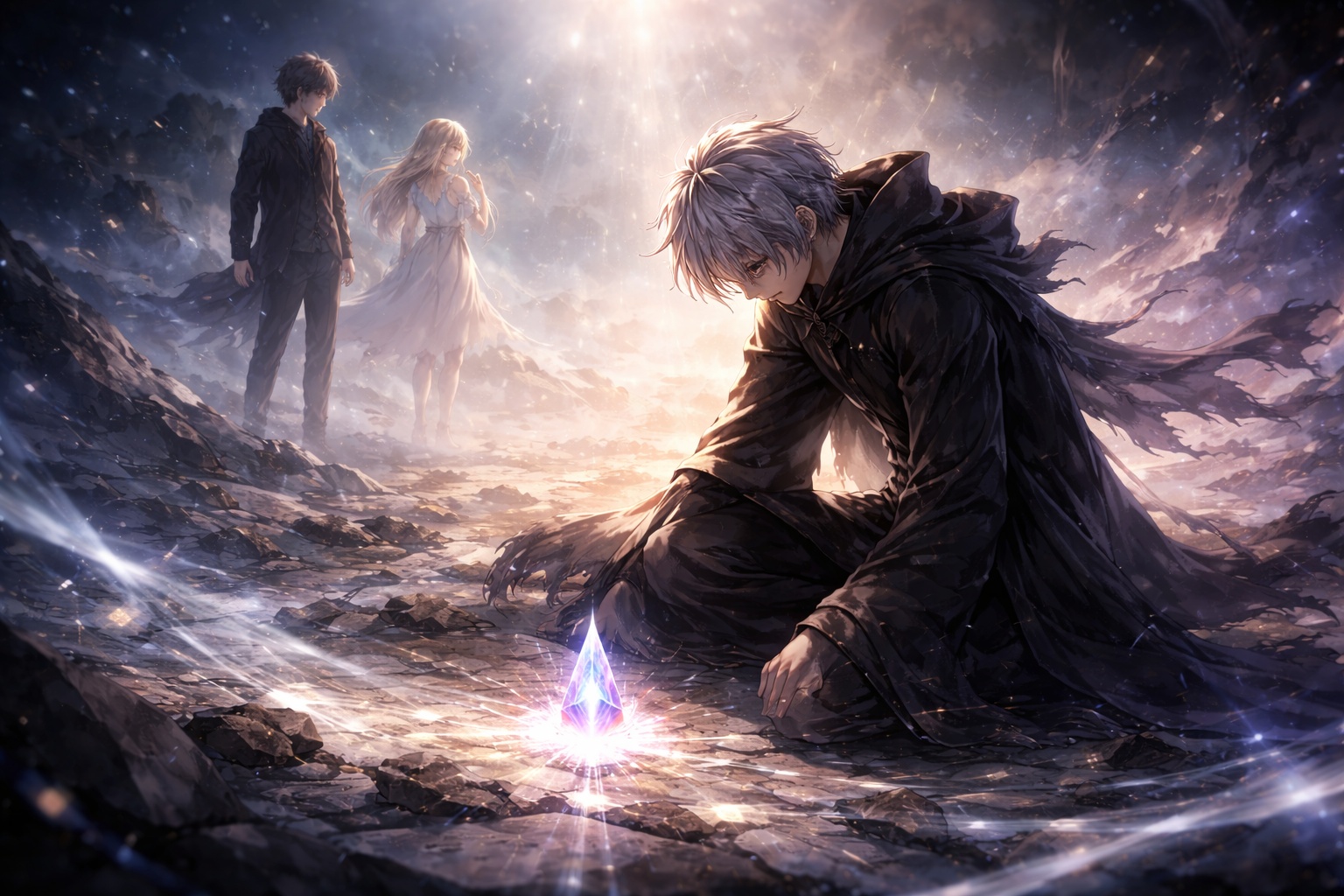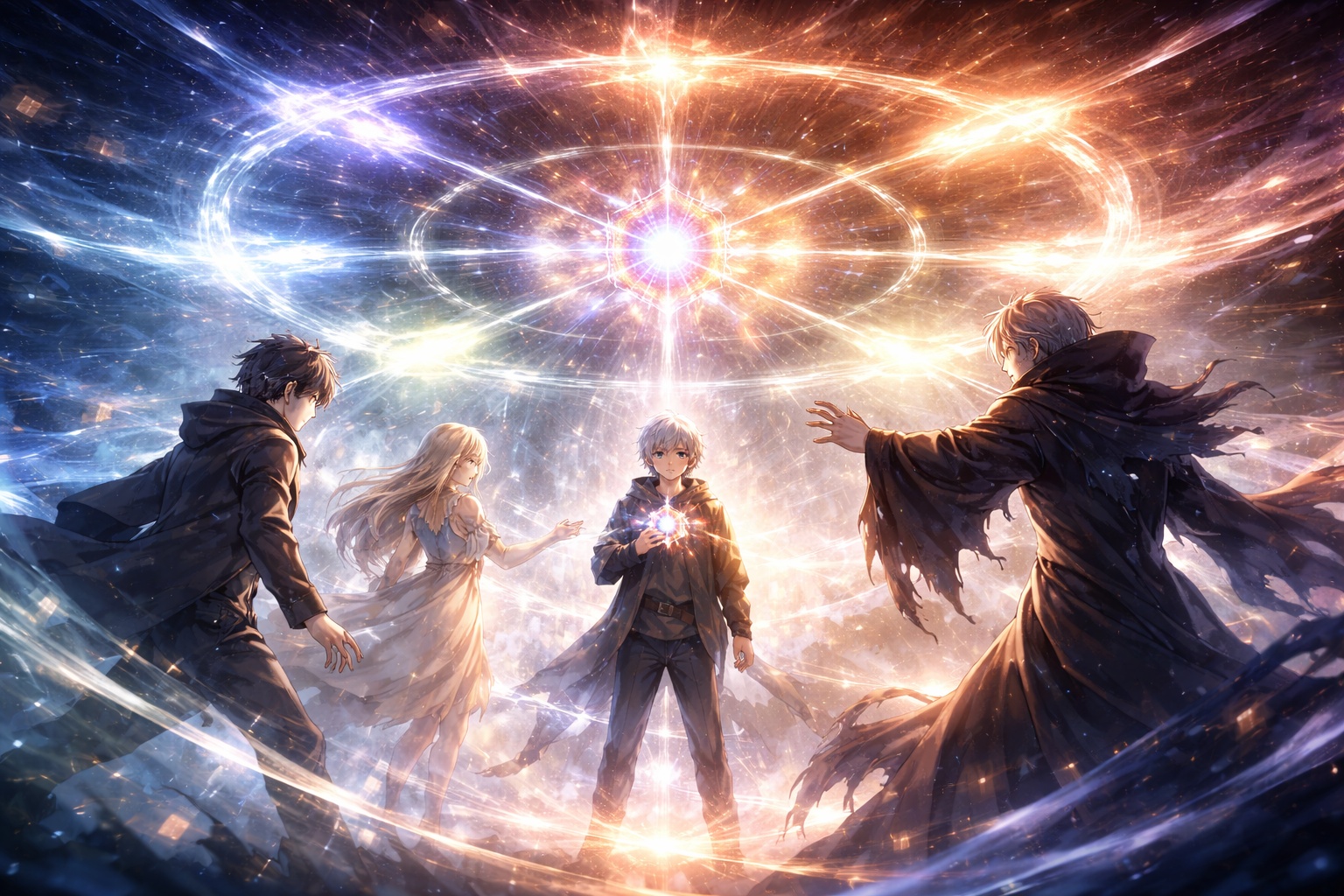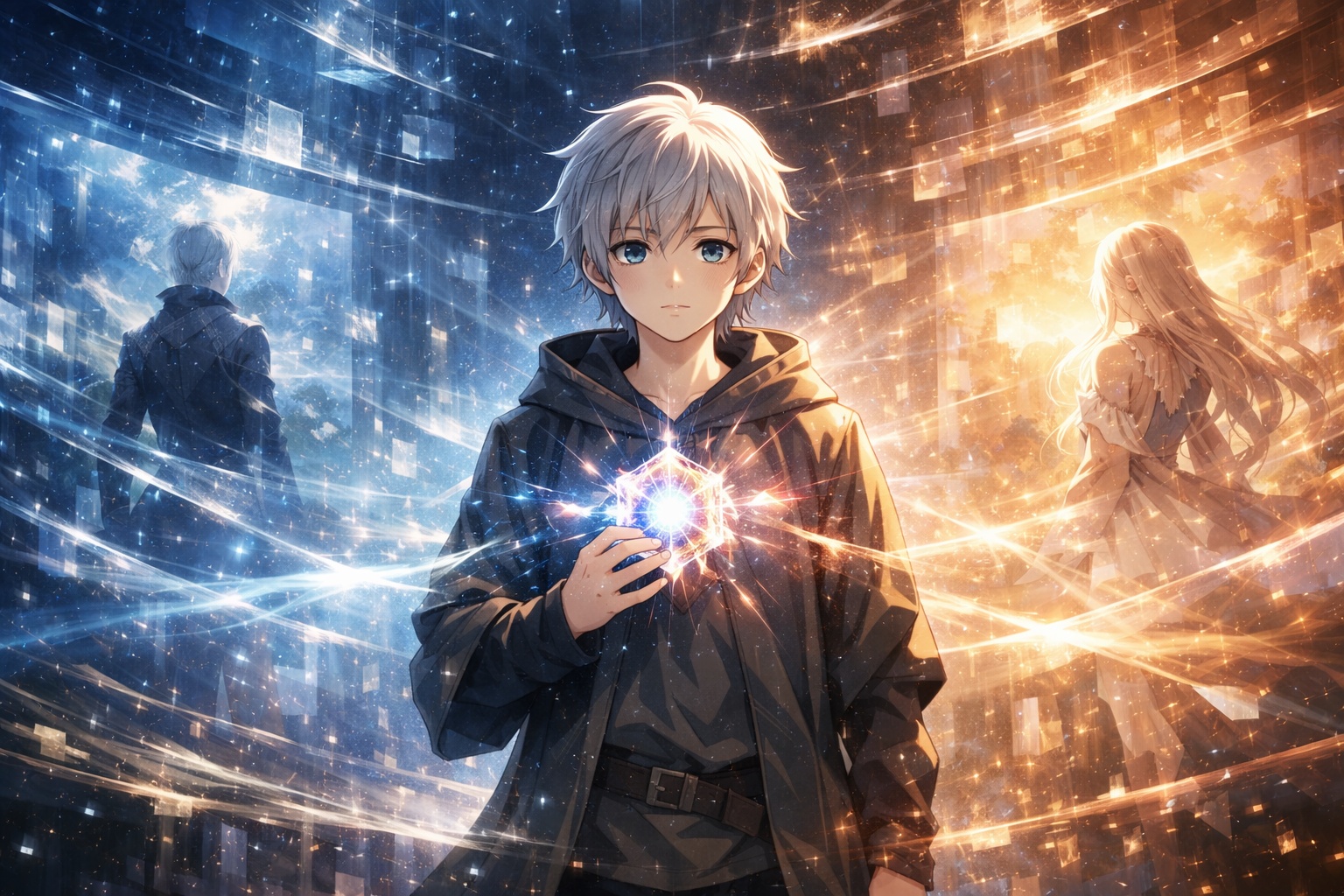The Forgotten Town
I awoke in a field of soft green grass, dew still clinging to the sleeves of my shirt.
Around me stretched a quiet meadow that seemed to reach the ends of the horizon. In the distance, a small town emerged — dark tiled rooftops, cobbled streets, and cast-iron lampposts holding unlit oil lanterns with fogged glass.
There were no motorbikes.
No power lines.
No transmission towers.
Only the gentle clatter of a horse-drawn carriage echoing somewhere in the vast, grayscale space like an old film played in slow motion.
I stumbled to my feet. My body felt whole, but something was undeniably different — as if the gravity here was slightly denser, the air thicker with time, and the sky tinged with the dust of forgotten memories.
I began walking toward the town.
On the way, I passed people dressed in old-fashioned clothing: high-collared shirts, long skirts brushing against the ground, felt hats, and stiff leather shoes.
No one seemed surprised to see me.
They simply nodded as if they’d known I was coming.
One man, standing beside a wooden cart of bread, muttered softly as I passed:
“A newcomer? Remember to dream regularly, or it’ll be too late.”
Before I could respond, he was already pushing his cart down the street.
I found a small tea shop tucked at the corner of a quiet block.
Inside, there were no digital signs, no Wi-Fi — only paper books, a ticking pendulum clock, and the warm light of sunset spilling in through the windows.
I asked the server — a young woman with eyes that felt centuries old,
“Excuse me… where am I?”
She didn’t answer directly. Instead, she poured a cup of tea, set it down, and replied softly,
“A place forgotten… or chosen to be forgotten.”
“We call it the Crossway.”
I frowned. “Crossway to what?”
This time, she truly looked at me. Her gaze sharpened.
“To memories that don’t belong here. Or no longer belong where they came from.”
The Town That Dreams
I stayed in that town for several days — or maybe more, or maybe less.
There were no phones, no calendars, no way to measure time.
Each night, I slept in the attic above the tea shop.
And each night, I dreamed.
But they weren’t ordinary dreams.
I found myself inside other bodies, in other worlds.
Once, I was a soldier wandering a barren desert.
Another time, a young girl riding atop a massive beast through a mist-filled jungle.
Then — I was Rhelon, my son, sitting alone in a boundless circular library, gazing directly toward where I stood.
Every morning, I remembered everything.
I began to ask around.
An old man who owned a dusty bookshop smiled kindly as I told him my dreams.
“You’ve begun,” he said.
“This town is a convergence point between layers of reality. Everyone here has ‘stumbled in’ from somewhere else — carrying fragments of memories that never belonged to them.”
“Dreams aren’t illusions. They’re echoes, returning from dimensions you’ve touched.”
I asked, “Then Rhelon, my son…?”
The man’s eyes grew still.
“He might be dreaming of the very world you’re standing in. He might’ve arrived before you. Or perhaps… he’s waiting.”
That afternoon, I sat alone beneath the trees.
A strange sensation crept over me — as if someone was watching from afar.
I turned around.
No one.
But in the glass of the bakery window behind me, a masked figure flickered out of sight — a bronze mask, glinting briefly before vanishing.
I shot to my feet.
And in that moment, I understood: This wasn’t the old world anymore.
And I wasn’t the only one who had crossed over.
Something… or someone… had seen me first.
And now — it was waiting.

